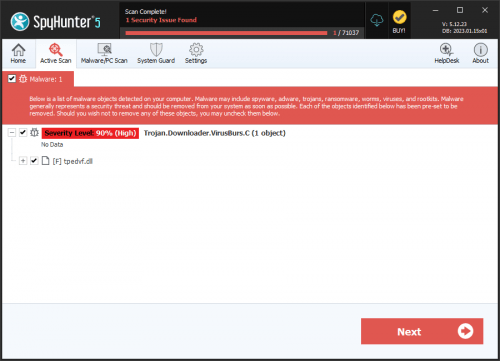SBU Ransomware
The SBU Ransomware is a threatening computer virus pestering computers and causing havoc on these machines. It belongs to a family of ransomware known as Dharma, which has been active for several years. The SBU Ransomware is designed to encrypt files on a targeted computer, rendering them unusable unless a ransom is paid.
Cybercriminals typically distribute ransomware through phishing attacks, malicious downloads, and malware-infected systems. It also may spread through security vulnerabilities in outdated software or hardware and removable media such as USB drives. As we can see, computer users need to be extra attentive when introducing new applications and tools to their machines because if they install a corrupted one, the consequence can be a ransomware infection such as the one caused by the SBU Ransomware.
Also, by taking the measures described below, they can avoid numerous problems and keep ransomware infections away from their machines.
- Remain vigilant and aware of common ransomware attack vectors
- Regularly back up all files on an external hard drive or cloud storage
- Install and maintain up-to-date anti-malware software on all devices
- NEVER pay the ransom demanded by cybercriminals
- If infected, seek professional assistance to help you recover the encrypted files
When all the selected files have been encrypted, the SBU Ransomware creates and displays its ransom note demanding payment to unlock their files. The message can appear on the desktop, be dropped in various folders, or be sent via email. In the case of SBU Ransomware, it will appear in a pop-up window as a text file named 'info.txt' and contains instructions on paying the demanded sum of money to recover the lost data. All the files enciphered by the SBU Ransomware will be marked by the file extension '.SBU,' which the threat adds to the file names.
To contact the criminals handling the SBU Ransomware, the victims can use the two email addresses provided by them, pcsysbu@proton.me and pcsysbu@keemail.me. However, it can be disastrous to contact these people or pay the asked ransom. When infected by ransomware, the best action is to remove the infection from the affected machine and then look for viable ways to decrypt the damaged data.
The ransom note exhibited by the SBU Ransomware reads:
'YOUR FILES ARE ENCRYPTED
SBU
ENCRYPTED
Don't worry, you can return all your files!
If you want to restore them, write to the mail: pcsysbu@keemail.me YOUR ID -
If you have not answered by mail within 12 hours, write to us by another mail:pcsysbu@proton.me
ATTENTION!
We recommend you contact us directly to avoid overpaying agents
Do not rename encrypted files.
Do not try to decrypt your data using third party software, it may cause permanent data loss.
Decryption of your files with the help of third parties may cause increased price (they add their fee to our) or you can become a victim of a scam.'


